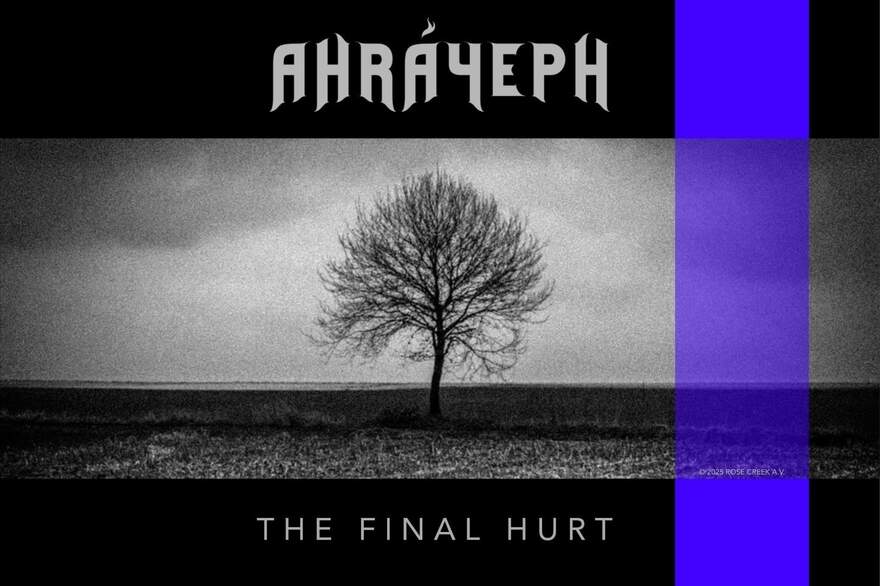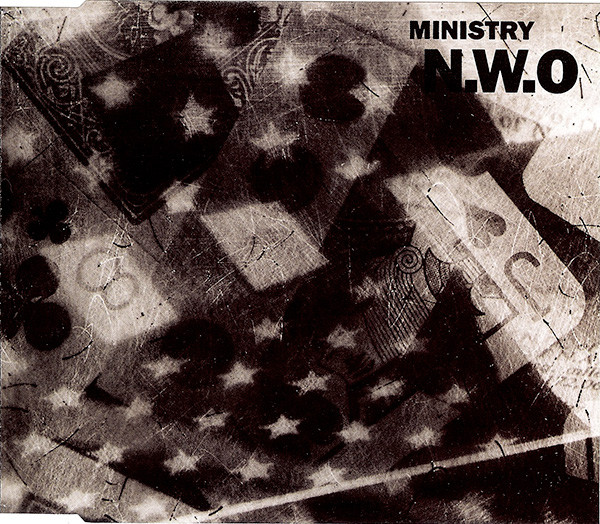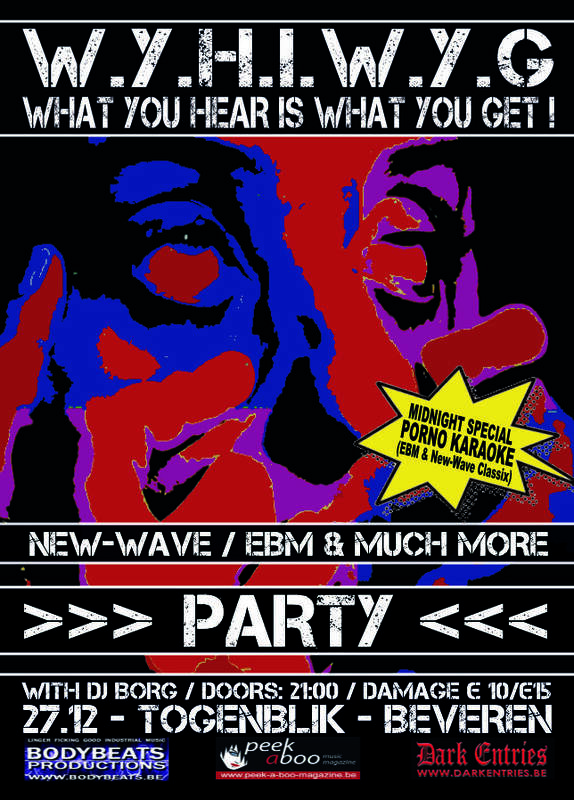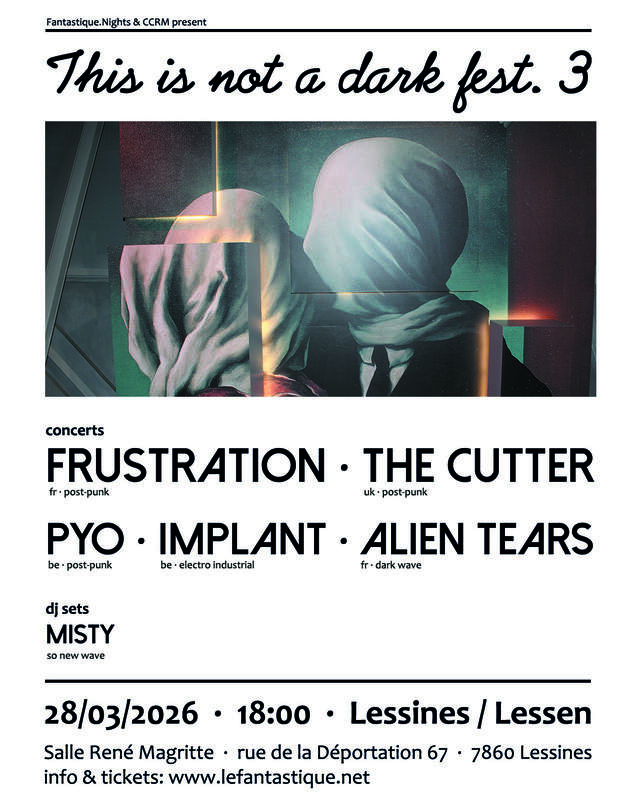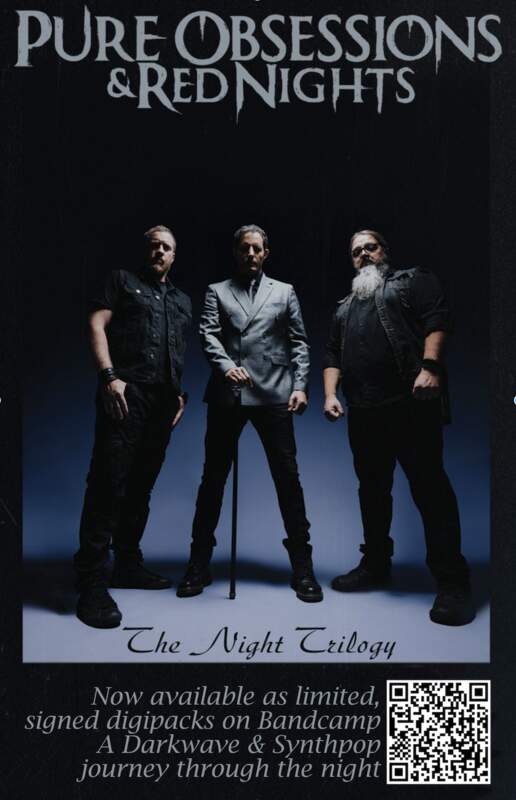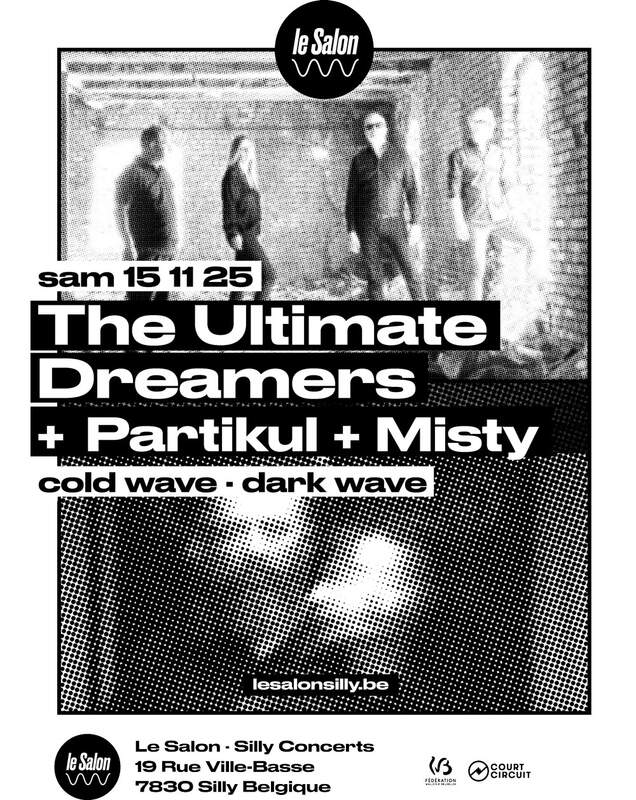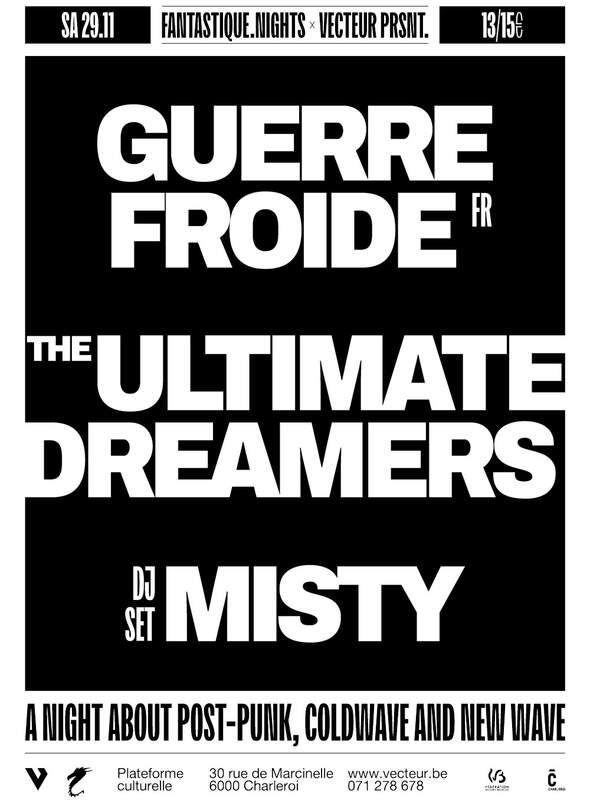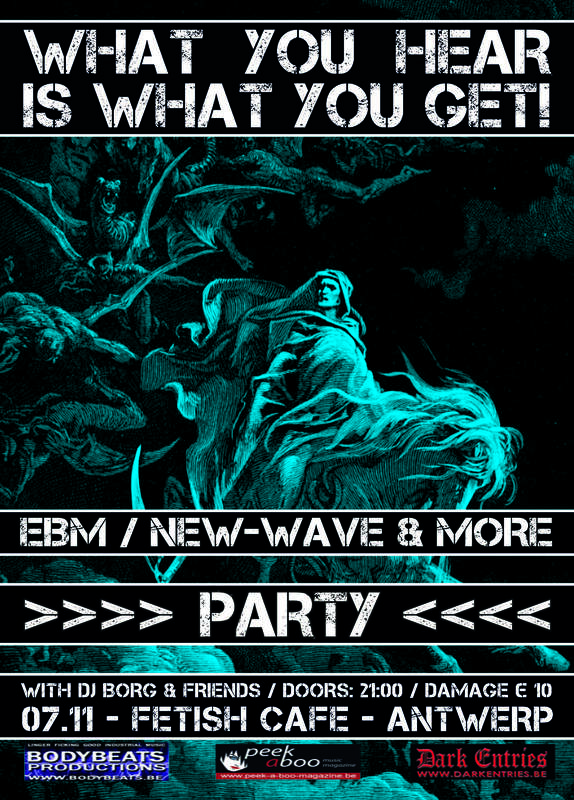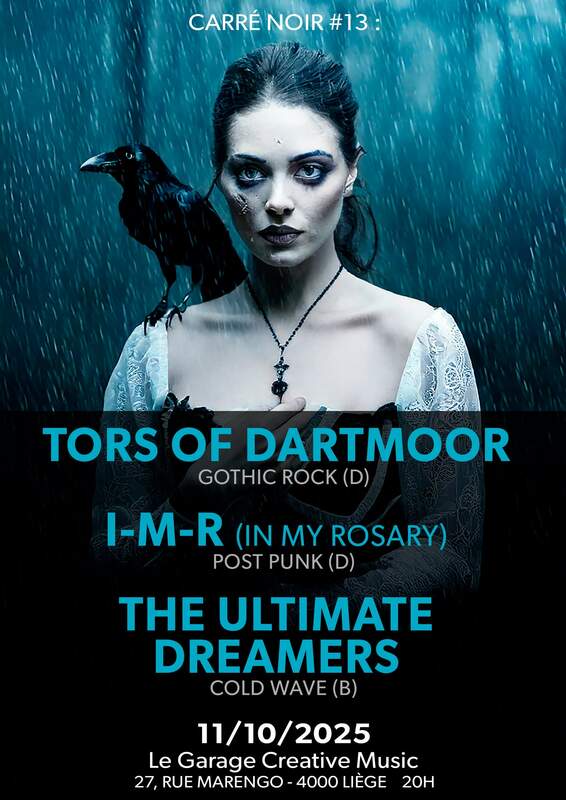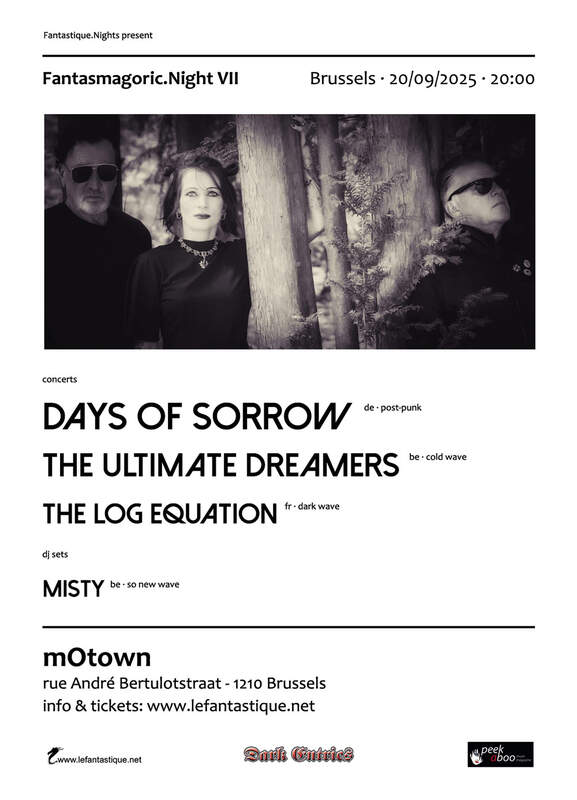Something is ending. And something else begins.
This autumn, Ahráyeph returns with The Final Hurt- the fourth and closing chapter of a long-intended cycle. While it is a conclusion of a personal and artistic arc, this is not an ending. This is a reckoning.
Born of scars, shadows, and acceptance, The Final Hurt isn’t a concept album in the traditional sense : it doesn’t tell a single story. There is, however, an overarching thread running through the songs; a loose constellation of ghosts; of trauma faced, of pain confronted; a slow burning purge of grief, rage, and sorrow. It’s the sound of an attempt to lay these ghosts to rest, of final nails being driven into coffins... yet the lids never quite remain sealed.
Darkness runs deep in these songs- but so does defiance. Somewhere beneath the weight, there is acceptance. Of damage done. Of who we become in the aftermath. This is the sound of a long road reaching its end, only to vanish into fog.
Autumn 2025. The hurt ends. Or does it? Because the final hurt is never truly final.

On this day, 39 years ago ,FRONT 242 recorded their John Peel Radio Sessions for BBC 1 Radio!
On this day, 39 years ago, the Belgian EBM icons FRONT 242 were invited to record a BBC live radio session for the legendary John Peel sessions (13 July 1986). The complete session was broadcast on BBC Radio 1 on 23 July 1986. Listen below to some of the amazing alternative versions of FRONT 242's classics, taken from their No Comment LP (1984), Politics of Pressure EP (1985) and their very first release, the 7" Principles/ Body To Body (1981).
Tracklist:
No Shuffle
Funkadafic
Don't Crash
Body to body
Line-up:
R23 (Drums, Vocals)
Patrick Coornys (Keyboards)
Jean Luc De Meyer (Vocals)
Daniel B. (Keyboards, Special Effects)

6 years ago Rüdiger Frank of Printed At Bismarck's Death and The Tors Of Dartmoor passed away...
Today 6 year ago, we received the sad news of the death of Rüdiger Frank ((° 17. Juni 1967, Ludwigsburg; † 12. Juli 2019, Markgröningen, Germany), singer of German gothic rock band The Tors Of Dartmoor. Rüdiger Frank left Printed At Bismarck's Death in 1989 with keyboard player Heiko Muter (who died in 2001) to form a new gothic rock band: The Tors Of Dartmoor, named after an English rock formation in a mystical landscape.
I got to know The Tors Of Dartmoor in 1991, shortly after the release of their grand debut "The Obvious Darkness". I remember very well taking this CD in the store, intrigued as I was by the band's name as wel as the cover-artwork with a photo of a ruin. The seller told me that this was the latest gothic sensation from Germany. Sold! I absolutely loved this album with classics such as "Waterking" and "Meet Moshe Dayan" (a song they wrote still with Printed At Bismarck's Death). Since then The Tors Of Dartmoor has been number 3 in the list of my favorite gothic rock bands, after The Sisters Of Mercy and Fields Of The Nephilim and just before Love Like Blood.
I was delighted when The Tors Of Dartmoor came to play in my hometown of Antwerp in 1992 at the Phantom Festival in the Limelight (the poster also included The Lance Of Allotment, Dive and Die Krupps). I will never forget the performance of The Tors Of Dartmoor and I still remember perfectly how it began. A tall guitarist and bass player came on stage and started to play the first song. When, after a few minutes, everyone started to wonder where the singer was, a small jerk suddenly came out of the backstage door, a kind of troll king who controlled the entire performance. What a voice and what a presence! Rüdiger Frank suffered from dwarf growth and never grew taller than 1.34 meters. But as small as he was in stature, as big was his act and his stage presence!
And this not only with his gothic rock bands, because in Germany Rüdiger Frank was also a well-known and celebrated actor. He played numerous roles there, including that of God in the piece "Mefistofele" and of Riff Raff in the musical "Rocky Horror Show". In later years he was known for his double role in the world's first steampunk opera "Klein Zaches, genannt Zinnober" and until very recently as Herod in the rock opera "Jesus Christ Superstar".
After the unparalleled debut "The Obvious Darkness" (1991) the albums "House Of Sounds" (1993, tip: "Welcome To The House"), "Third Second" (1996, tip: "Gypsy") and“ Chapter VI ”(2004) which still had a bunch of strong songs but which, as an album, unfortunately could not match the level of their debut.
Recently Rüdiger Frank was also active in the Romeo Is Bleeding formation, which made music inspired by Tom Waits. Unfortunately he could not finish a long-planned solo album. Rüdiger Frank had had health problems for a long time and was only 52 years old. I will cherish my copy of "The Obvious Darkness", signed by the four band members at the Phantom Festival in 1992, forever. [Henk Vereecken / Dark Entries]
Memorial-Site on Facebook
DISCOGS
This month it’s 33 years ago (July 1992) Ministry released the first single, N.W.O. (New World Order) taken from their fifth studio album ΚΕΦΑΛΗΞΘ better known as Psalm 69. The single is considered Ministry's biggest hit, topping out on the Billboard Modern Rock chart at no. 11. The song was nominated for the Grammy Award for Best Metal Performance in 1993.
The song is widely regarded as a protest against then-President George H. W. Bush. The song features audio samples of his voice, with him repeating "A new world order" over and over again at the end of the song. At this point of the song in the music video, Bush is portrayed by an actor with an enormous papier-mâché head, grabbing his crotch and waving his arms. Samples from Apocalypse Now are included in this track: Dennis Hopper's character exclaiming "It's alright!" as the patrol boat is approaching the colonel's fort, as well as the siren that was used during the scene. There is also a loop of the guitar solo coming from a transistor radio in the grenade launcher's bunker.
Next to the album version and the over eight minute long Extended Dance Mix of the title track, there's also the non-album bonus track Fucked writen by Paul Barker and Howard Beno.The cover artwork was designed by Paul Elledge.
N.W.O
Track listing
1. N.W.O. (Album Edit)
2. Fucked
3. N.W.O. (Extended Dance mix)
Lyrics
All the locals hide their tears of regret
Open fire 'cause I love you to death
Sky high, with a heartache of stone
You'll never see me 'cause I'm always alone
How to love without a trace of dissent
I'll buy the torture 'cause you pay for the rent
Tied high with a broken command
You're all alone to the promised land
I'm in love with this malicious intent
You've been taken but you don't know it yet
What you will know must never live to be found
'Cause it's the subject of the eyes of the clown
writen by: Al Jourgensen / Paul G. Barker

12 years ago, Front Line Assembly released their 15th full-length studio album 'Echogenetic'.
"Echogenetic," released 12 years ago, on July 9, 2013, marks a significant evolution in Front Line Assembly's sound, blending their industrial roots with modern electronic elements. This album, produced by Bill Leeb and Jeremy Inkel, represents a departure from the guitar-heavy approach of previous works, focusing instead on intricate synths, pulsating beats, and cutting-edge production techniques.
Tracks like "Killing Grounds" and "Exhale" showcase the band's ability to fuse aggressive rhythms with melodic hooks, while "Blood" and "Deadened" highlight a darker, more atmospheric side. The use of contemporary electronic influences, including dubstep and electro-industrial, provides a fresh, dynamic listening experience.
As opposed to the band's earlier output, guitars were absent from Echogenetic. Intravenous Magazine commented on this, saying "Instead the band assimilate the sound into their arsenal so effectively that it fits quite comfortable and even manages to mask the pronounced lack of guitars on the album."
"Echogenetic" received critical acclaim for its innovation and cohesive sound, solidifying Front Line Assembly's position as pioneers in the industrial genre. The album's meticulous production and forward-thinking approach have left a lasting impact, making it a standout release in the band's extensive discography.
The album received in general a 9/10 rating from the specialized music press, reached the 19th position in the US Top Dance/Electronic albums Billboard and even a first place in the German Alternative Charts (DAC).
Front Line Assembly - Echogenetic (MET 885/Mind 209)
01. Resonance 2:46
02. Leveled 5:17
03. Killing Grounds 5:58
04. Blood 5:25
05. Deadened 5:48
06. Ghosts 4:43
07. Echogenetic 4:35
08. Exhale 5:27
09. Exo 7:09
10. Prototype 5:36
11. Heartquake 5:42


